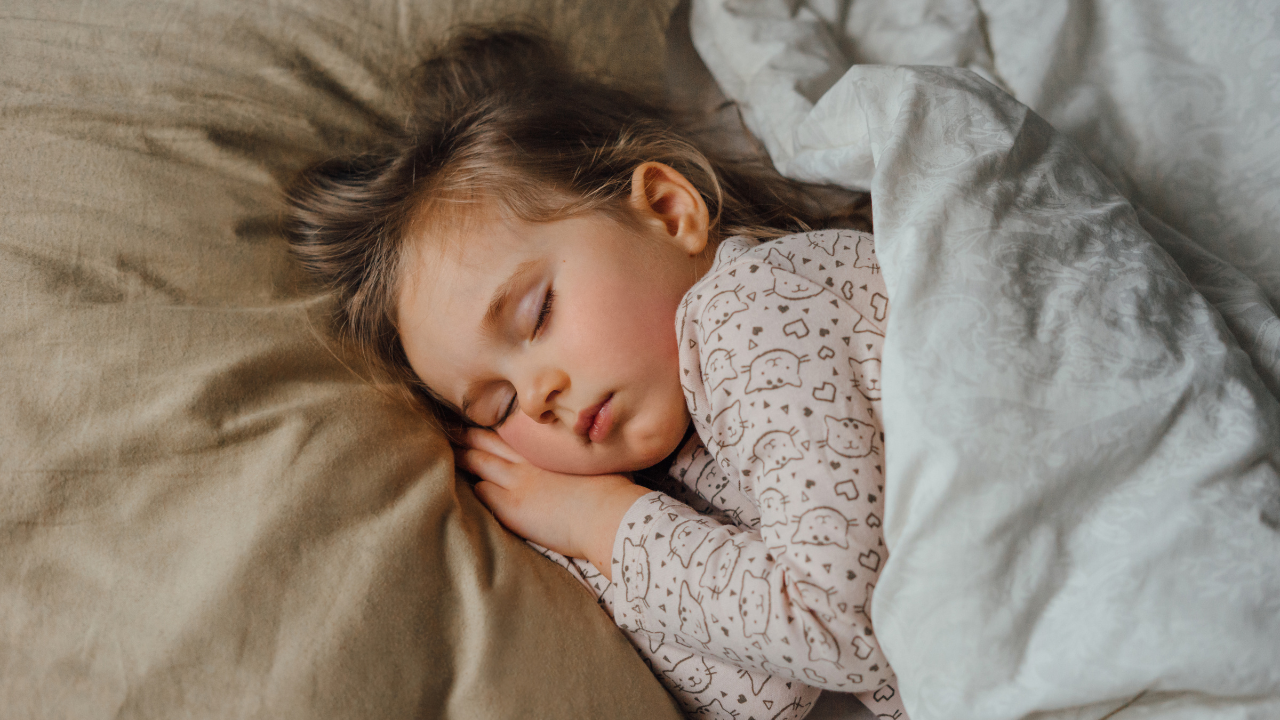KIDS, SLEEP & MELATONIN, WHAT YOU NEED TO KNOW
Aug 26, 2023
With back to school in full swing, familiar routines start up again, and that includes reining in those late nights and getting the kids back on track with bedtime.
This time of year, conversations with clients and others naturally turn to their kids or grandkids and on more than one occasion, the topic of kids and sleep has come up. Setting the bedtime doesn't seem to be a problem. How their littles (and not so littles) are just not sleeping is the bigger concern. And of course if they're not sleeping, neither are you.
For well over a decade I've been coaching clients on how to achieve their health and weight goals through blood sugar stabilization and hormonal balance. There are six components to consider, one of which is sleep. Truly, a key piece to overall health, and sadly most people aren't getting enough. As my own kids were great sleepers, it never occurred to me that lack of sleep, in both hours and quality, was as pervasive as it is. The Sleep Foundation posted an article earlier this month stating that, “50 percent of children struggle with sleep at some point during childhood”, and that “20 to 30 percent of kids are diagnosed with sleep disorders”.
In addition to nutrition, I spent almost 20 years in education, specializing in behaviour, working in the classroom with kids with special needs. Sleep was an issue for many of the kids I worked with. However, regardless the age or their scholastic ability, it sure was easy to tell who had stayed up late on a school night.
Because of the comments I was hearing and things I was reading, I decided to do a little investigating on my own. Sure my kids are grown, but I work with families, there's friends and neighbours, and it's back to school so here we are. So,I took a day and sent out messages to everyone I could think of with kids/teens, posted videos and polls on social media asking for feedback. I asked, “Do your kids have trouble sleeping?” and “Do you ever given them melatonin or anything similar for it?”. Only two out of all who responded said their kids slept well.
I happened to be at the chiropractor that day and I asked him the same questions with regards to the kids in his practice. His resounding, “Heck ya!” reinforced my thoughts on whether or not this topic warranted an article. Cleary it does.
We all know that sleep is important, but what does lack of sleep really do besides bring out your child's inner ghremlin? Let's take a look.
Lack of sleep impacts physical health. Sleep Medicine Reviews reports that children and adolescents with inadequate sleep are at a higher risk for obesity as lack of sleep disrupts their metabolism and increases appetite, often for sweets and starches.
Mental health is affected. According to the American Psychological Association, lack of sleep causes increased feelings of stress and anxiety which contributes to sleep difficulties, continuing the cycle. Currently 25 percent of teens report feeling stressed out daily.
Learning is impacted. The NIH, National Institute of Health states, lack of sleep impacts academic performance as students are more likely to struggle with attending in class, memory, focus and learning.
Clearly our kids need to get some Zzz's. Almost all whose kids have difficulty sleeping reported that they had used, or are currently melatonin. While melatonin is a hormone our brain needs for sleep, ingesting it has been shown to have some serious negative effects vs stimulating your body to make more on its own.
Because melatonin supplements can overwhelm the body's natural production and confuse the body's internal clock, kids who take it may experience drowsiness during the day. When used improperly, melatonin supplements can disrupt the natural sleep cycle, leading to disturbances. Taking high doses of melatonin for extended periods of time may interfere with the body's natural hormone regulation, leading to potential hormonal imbalances.
The amount of melatonin kids produce naturally change as they grow older, and continued use can disrupt the body's natural development. As well, some kids may become dependent on melatonin supplements to initiate sleep, which can lead to difficulties of ever falling asleep without them. And if synthetic melatonin is part of your bedtime regimen, note that the American Academy of Sleep Medicine (AASM) recently issued a health advisory with warnings about its use. The Journal of Clinical Sleep Medicine also published a study that found “significant quality problems with melatonin supplements.... having contaminants or failing label claim.”
Ultimately, the long-term effects of melatonin use, especially at higher doses, are really not well understood. Not sure about you, but I'm not too excited to give a child anything where the long-term outcomes are not well understood.
And yet the child still needs to sleep. Nutritional bio-chemist, Dr. Shawn Talbott advocates a natural approach using things like turmeric, berries, lemon, vanilla, chamomile along with magnesium, vitamins B,B12, B6, D, D3, to help calm, relax and regulate moods, together with the plant-based ingredient, Maizinol to help your child's body make its own melatonin. Keep it sugar free, including artificial sweeteners. Your child will feel calmer, relaxed and have an overall deeper sleep. Which means you will too.
For more information on kids' sleep aids, email [email protected]. To watch Tania's free training on blood sugar stabilization, click here.

